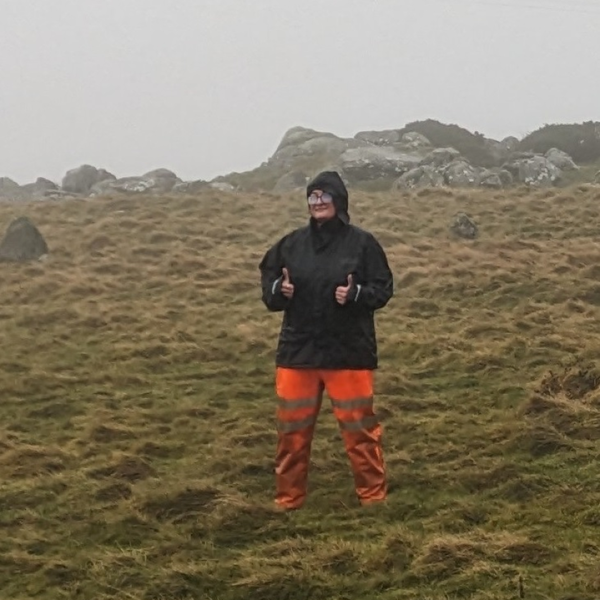Kay Hamilton
School of History, Philosophy and Digital Humanities
PhD Student (Archaeology)


- Profile
-
Thesis title: Environmental histories of grazing and the sustainability of montane ecosystems: a case study in Eryri, North Wales.
Supervisors:
- Bob Johnston (Primary)
- Gianna Ayala (Secondary)
I arrived at my interest in archaeology backwards: looking forward into the future. For as long as I can remember I've been preoccupied with where we're going as a species, and I've always been (tragically) aware that until we invent time travel, the best way to inform our steps forward are to look back at, and hopefully learn from, our past.
I received my BA in Archaeology from the University of Exeter in 2010, having written my dissertation on the landscape archaeology of pastoral medieval agriculture. I received my MSc degree in Environmental Archaeology from the University of Reading in 2020, where my thesis presented a vegetation chronology and atmospheric pollution record recorded within an ombrotrophic peat bog near Mynydd Ddu, Bannau Brycheiniog, using palynology and portable x-ray fluorescence. I have worked in archaeology, both in commercial units and as an independent contractor, since 2013, initially as a field technician before moving into environmental archaeology.
I commenced my ACCE-funded DTP project at şů«Ӱҵ in October 2023, exploring the cultural landscape of the Carneddau mountain range in north Wales. This approach will address the impact of past and present pastoral practices on the biodiversity of the landscape through the tools of palynology and climate modelling, working in collaboration with the Carneddau Landscape Partnership. Ultimately the aim of the research is to inform decisions about future sustainability and conservation of mountain landscapes.
- Qualifications
-
2023 - Present - PhD - Archaeology and Prehistory
2017 - 2020 - MSc - Environmental Archaeology
2007 - 2010 - BA - Archaeology
- Research interests
-
Environmental histories of grazing and the sustainability of montane ecosystems: a case study in Eryri, North Wales.
I am primarily interested in Holocene climate change and adaptation strategies by the contemporary human communities responding to them. My proxy of choice for these investigations is pollen (and NPPs) because I'm a firm believer in the inherent potential that palynology presents for detailed environmental reconstruction. As an element of my PhD project I'll also be looking at testate amoebae as hydrological indicators which will enable the creation of climate models.
I'm currently a member of the AASP and the Association for Environmental Archaeology, for which I also serve as one of two committtee Student Representatives. I am currently working on a local pollen atlas (the Oxfordshire Pollen Atlas, or OPA!), which aims to create a reference database linking a taxon's pollen morphology to the originating plant and its ecological niche.
Thesis Abstract
The project will investigate the environmental history of montane heath in the Carneddau mountains, North Wales. This fragile landscape is classified as being in an unfavourable condition, affected by over-grazing and climate change. Plans to diversify grazing regimes and increase woodland are perceived by influential stakeholders as threatening centuries-old traditions of farming. This perception inhibits the changes that are needed to counter losses in biodiversity and the degradation of upland peats.Research can provide the evidence-base to challenge these misperceptions and inform decisions about future sustainable management of mountain landscapes. There are few palynological studies available for Eryri, with the most recent work indicating spatial and temporal variability in vegetation, probably caused by changes in farming practices and climate. Archaeological and historical evidence points to variation in where and how humans farmed the mountain environment.
- Grants
-
2023 - PhD DTP studentship (ACCE)
- Professional activities and memberships
-
September 2015 - present: PCIfA
Employment/volunteering
December 2020 - present: Environmental archaeologist
